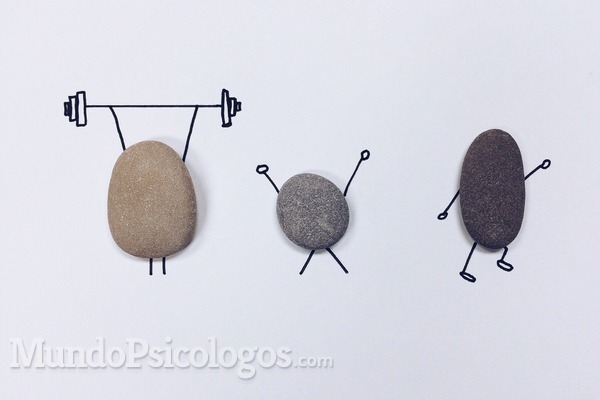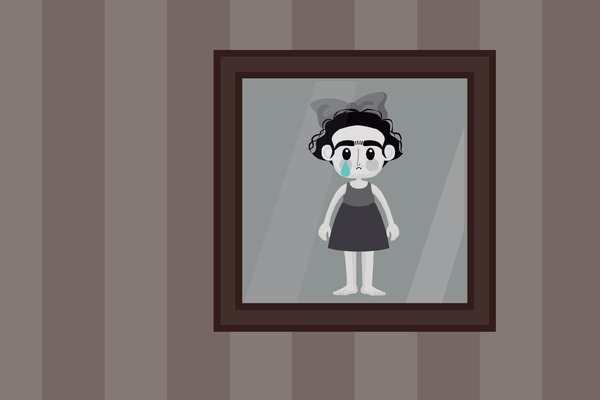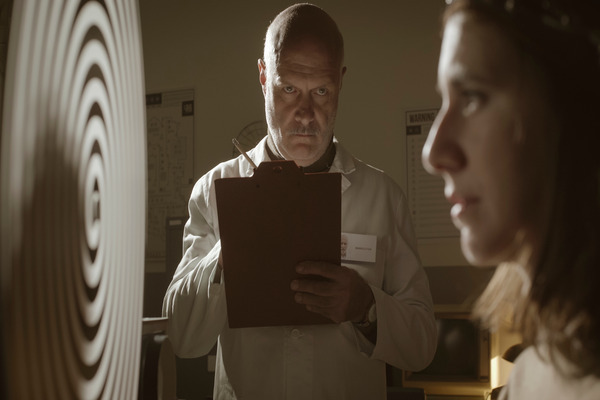What happens if we live thinking about the future and planning what will happen to us? Today I explain the story of the milkmaid and the dangers of living as castles in the air.

Surely you have heard the famous tale of the milkmaid but just in case I am going to briefly summarize what it tells and its moral to give you background.
Although there are several versions, since it is a popular story, in general terms it explains the story of a girl who goes with a jug of milk to the nearest town to sell it and thus make money. While she is walking along the road she is thinking about what she will do with that money: she will buy some eggs, chicks will emerge from those eggs, she will sell them and exchange them for a cow that will give her more milk and she will get more money by selling that milk. But along the way, while she is lost in thought, thinking about what she will do when she achieves all that, she does not notice a stone, she stumbles, falls and the jug breaks, spilling all the milk to the ground, so she is left without milk and without money. The moral of the story is that sometimes Ambition and castles in the air prevent us from living in the present moment.
Now you will say, what does the story of the milkmaid have to do with psychology and personal growth? Well, a lot, since there are many people who are continually thinking about the future, about what will happen, about plans, etc. and they leave behind what they are experiencing in the present moment.
I have sometimes talked about the problems of worrying about the future, but in this case we are not talking about worries but about thinking about goals, objectives to achieve and future motivations
In principle, it doesn’t seem bad to think about the future, and in fact, I think it’s good to set those goals because it makes what we experience in the present have meaning. That is, we are not wandering through life aimlessly, but rather we have a clear direction. The problem is when we look only at what will happen tomorrow and not at what is happening now.
I’m going to give you an example of this problem: Someone once explained to me that they had planned a trip very well. It was the trip of his dreams and he knew what he was going to see each day. I was very clear about what landscapes I would discover and what I was going to do at each moment. Once on the trip, this person realized that he had not enjoyed it for several days because when he arrived at the destination, instead of enjoying it and living it, he was thinking about how much he wanted to see what was missing from the trip. Furthermore, there was so much she had imagined he would do that she couldn’t materialize it all and she became frustrated. Some bus arrived late or there was work on that monument that he had been wanting to admire for so long, or he had planned to do too many things and then there was no time to do everything, so he had to choose or they suggested improvising but he would not allow it because then everything That well-structured planning would be dismantled. That is to say, it was useless to imagine so much and plan so much. When he arrived at his house he had the feeling that he had not enjoyed the trip because not all of his objectives had been met and he had become angry and frustrated on the trip. Furthermore, he realized that his own excitement about what he would do in the following days confused his present days and he did not allow himself to be spontaneous and enjoy every moment.
In summary, What are the consequences of living like the milkmaid’s story?
- Leave little room for spontaneity: It is one thing to be clear about the destination or goal and another very different thing is to imagine what each moment will be like. If we plan or imagine everything that will happen, we leave little room for improvisation. In some way we try to comply with what we have planned and we do not allow ourselves to go beyond what is established. And that may be a mistake. For example, imagine that you want to start a cupcake business. You already visualize what the establishment will be like, if it will have a cafeteria or it will be takeaway, what flavors there will be, what the decoration will be like, what prices your products will have, if you will have workers in your charge or it will be you alone, etc. You have everything so planned that you don’t allow yourself to improvise with what you feel like at the moment and that gives a robotic touch to your actions. Furthermore, if it turns out that a similar establishment is set up next door, no matter how much you have planned, if you want the business to survive, you will have to reconsider your thoughts and change something.
- Constant frustration: We cannot accurately plan the future, because there are so many variables that interfere that we cannot guess everything. Therefore, it is a wasted effort since when things do not go as planned we can become frustrated. Continuing with the example of the cupcake establishment, if, for example, you had already thought about the color of the chairs, paintings, etc., and then you can’t find them, you will feel bad about the result, even if the decoration is great anyway. Or for example, if you had already thought about the distribution of the space but when you have the premises you realize that it does not fit as you had thought. Frustration in these cases is guaranteed. It is better to wait and see things to adapt to the situation and look for solutions.
- Rigidity and excessive control: It’s a little boring being so meticulous, don’t you think? Imagining the future so much has a perfectionist, rigid and controlling point that prevents us from enjoying the unforeseen, what will happen and life in general. Rigidity and excessive self-control are harmful to ourselves because they generate constant anxiety and frustration when we cannot always get things to go as planned.
- Not enjoying the present and not seeing the dangers: I think this is the most important point. The present is the only thing we can change, so why focus on the future if we can’t do anything with it? Sometimes we are so blinded by the future that we do not see the setbacks that are coming and we hit walls. For example: a patient once told me that she started a relationship with a boy. She wanted to have a partner so much that from the beginning she was already thinking about how happy they would be, the house they would buy, the trips they would take and the children they would have. The hope for the relationship to work was so great that she did not realize that the other person was not at the same point, that she had a good time with her but did not want a serious relationship and, although she came face to face with reality, she continued Obsessed in falling in love with him and even did things that went against her principles and values to win him over and thus fulfill her dream, but the only thing she achieved was that the other person ran away and became more scared. Perhaps if she had focused on living what she was experiencing without so much planning, she would have realized that all that glittered was not gold and she would have been able to either enjoy a commitment-free relationship or cut it short.
Therefore, Let’s live more in the present, enjoy what’s coming and what we have, let’s solve the current problems and stop thinking so much about what may happen in the future; Overall, we’ll see about that tomorrow. What’s the point of thinking about it today?
Encarni Muñoz Silva
Health psychologist, member number 16918








